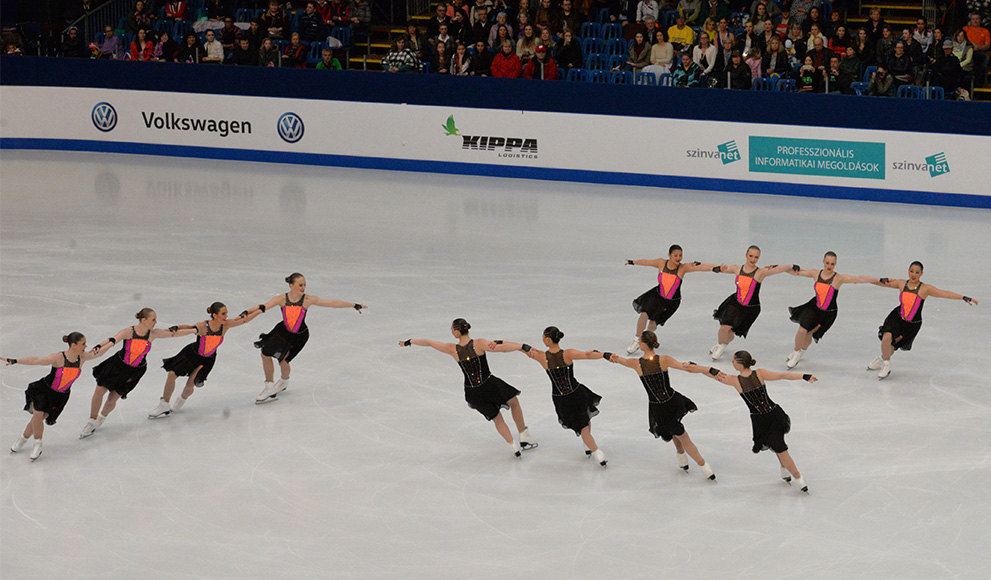Synchronized Skater Eliana Marostica '18 Thanks Wellesley Faculty for Helping Her Achieve Her Best Performance Yet

Shortly after figure skater Eliana Marostica ’18 and her teammates on the U.S. Synchronized Skating Team competed at this year’s World Skating Championships in Budapest, Hungary, a few weeks ago, she sent an email to Chris R. Arumainayagam, professor of chemistry:
"My team and I were in fourth [place] after the short program. We rallied to win the long program competition and come in third overall," she wrote. "Professor, I am so excited to be coming home with a World Bronze Medal (and a mini world gold medal for winning the long program competition)!! I also wanted to thank you for supporting me in pursuing both of my passions: skating and academics."
When Marostica returned to Wellesley a few days later, Arumainayagam and her fellow members of his lab threw a congratulatory party for her. He knows that support from a research mentor can be the most important factor in a student’s academic career. "It is a win-win situation, because I derive enormous pleasure from student colleagues' successes," he said. "[And since] the goal of our experiments is to understand the physical and chemical properties of cosmic ices using terrestrial analogs, perhaps our studies of terrestrial ices could give Eliana an edge in her ice skating competitions!"
For Marostica, a computer science major who hopes to become a physician, the surprise party "really made my entire week," she said, because post-competition days are hectic as she catches up on her work.
Now that the semester has ended, Marostica is focused on intensive training camps for skating and her summer internship at the Dana Farber Cancer Institute. She is also looking forward to next year's World Synchronized Skating Championships, which will be held in Colorado Springs, Colo. "I hope we achieve our full potential as a team in front of a home crowd and become the first-ever American team to win the World Championships," she said.
To do that, the team will need to achieve the same unison and technical focus in both the long and short program as they had in this year’s long program. That means a great deal of hard work, self-discipline, and empathy, said Marostica, who began competing as an individual skater and switched to synchro at age 11 because she enjoys the process of working toward a goal with others.
"My favorite feeling in the world is when, in synchro, that perfect unison is achieved within a line. At that point, so much more can be achieved together than what one individual could achieve on their own," she said.
Marostica finds that same sense of unity at Wellesley, where faculty and staff encourage students to reach their full potential. "As cliché as it may sound, I think the most important lesson I have learned at Wellesley is to believe in myself," she said. "There are so many ways for me to improve in all aspects of my life, but Wellesley has given me the perspective to see that I have the ability to work towards those goals and the tools to do so in the pursuit of a career that will ‘make a difference in the world.'"
